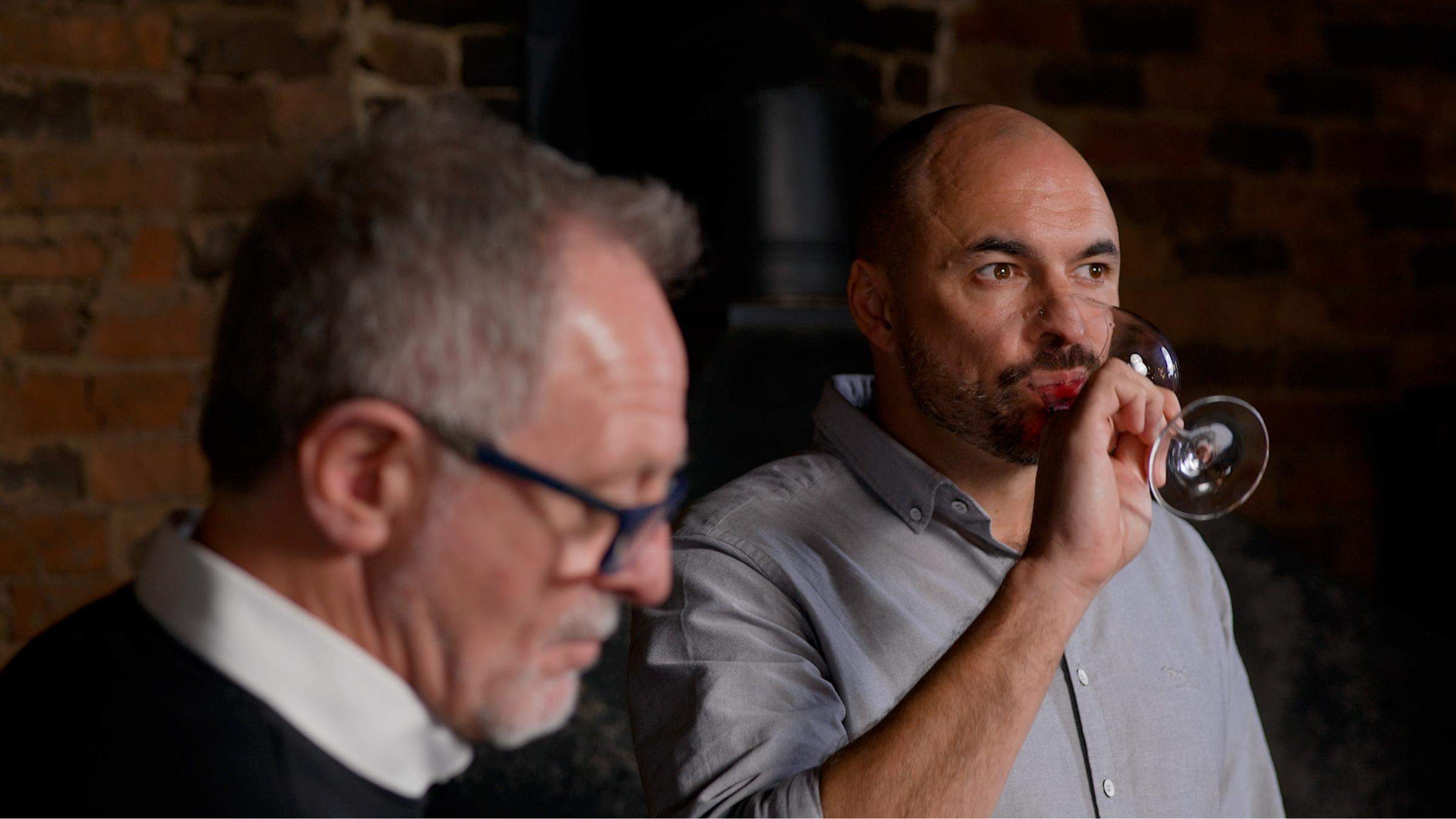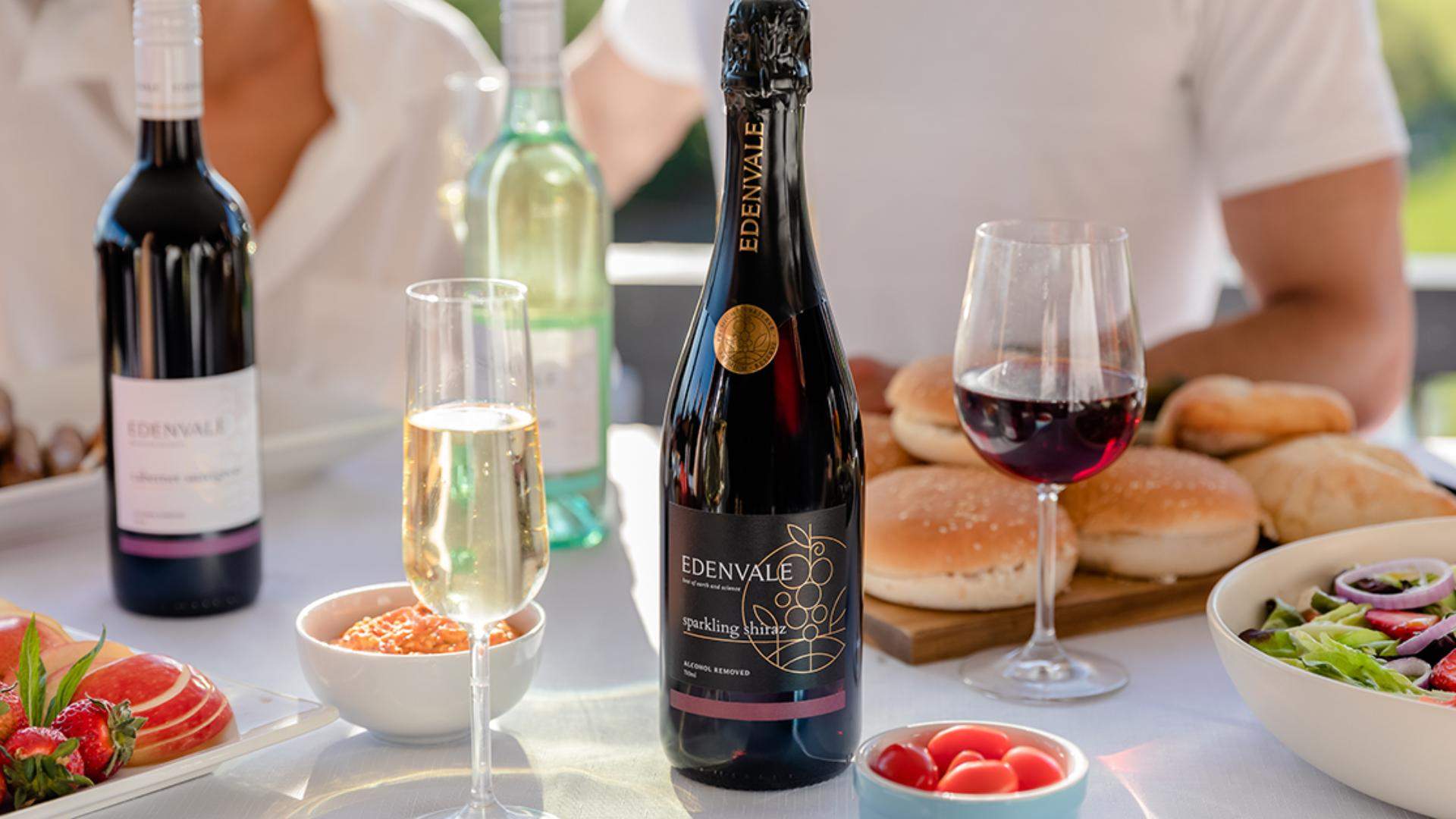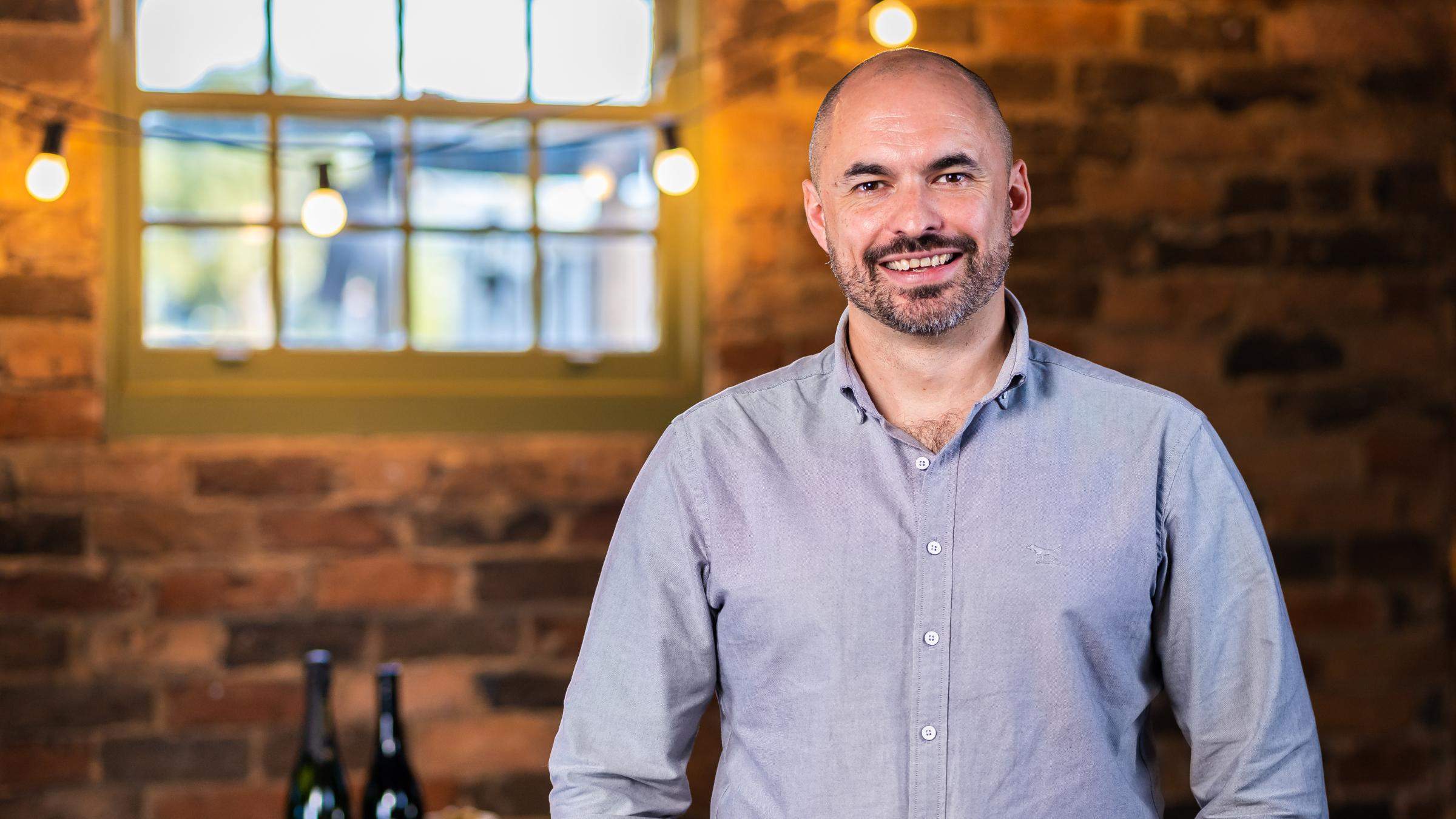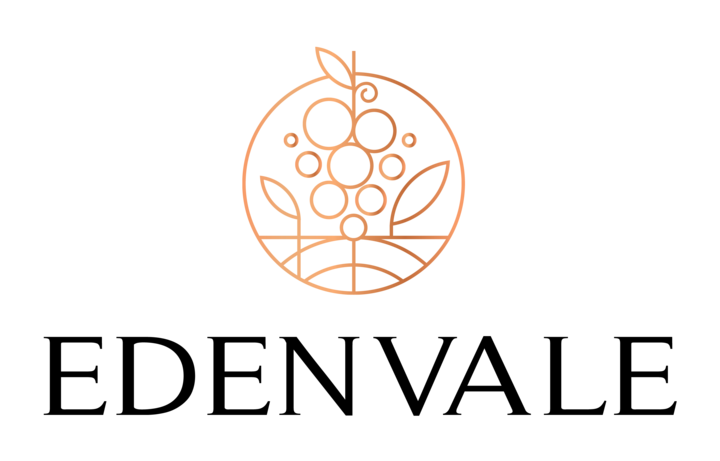Beyond the Buzz: We Asked a Winemaker How Non-Alcoholic Wine Is Actually Made
We spoke to Edenvale Wine’s winemaker Aaron Milne to find out how the heck he gets the alcohol out of the wine.
In partnership with
Aussies are embracing the no- and low-alcohol movement. When we go out to a bar, bottle shop or even our local supermarket, we are spoiled for choice with options for non-alcoholic wines, beers, mocktails and spirits. One such offering is from premium alcohol-removed winery Edenvale Wines. It has positioned itself as an alternative range of wines for wine lovers if they've decided to go booze-free for whatever reason.
We caught up with Edenvale Wines winemaker Aaron Milne to find out how the heck you even get the alcohol out of the wine, and what the future is for the no and low trend.

First up, tell us about your background. How did you become involved in the wine world?
I started in wine by picking up some work during the holidays working in the cellar door. About 16 or 17 years ago, I took a vintage job with Lindeman's Winery and I really enjoyed it. While I was there, I researched and jumped on a winemaking degree at Charles Sturt University. I was offered to come and work at AVL (Australian Vintage Limited) and they offered to help me with my studies. I did that and I really haven't looked back. It's been hectic!
What was it about the wine industry that drew you in?
It's just very different. When you're working in a factory or other production facility you do one thing every day, all the time. Whereas with wine, because it's so seasonal, we're doing a different thing at each time of the year and each wine is different and each season is different. So, although you are kind of making the same product every year, there's always something very exciting and challenging about it.
So how, and why, did you end up making alcohol-removed wines?
It was actually just fate. I was working at AVL and they had a division that had an alcohol-removal facility. They offered me a position to run the place. I was interested in the process, the spinning cone, evaporators, thermo flash extractors and all sorts of different pieces of equipment.
Back in those days, there was some scepticism about the concept — "Who is actually going for alcohol-removed wines?" — and then suddenly it just turned around. People became really keen on it and it just grew and grew.
AVL is where I met Michael Bright, he was our biggest customer and really championed the alcohol-removed wine category with Edenvale. I worked closely with him to improve and develop products and processes. When Michael asked if I wanted to join Edenvale and help them build a brand-new processing plant, I jumped at the opportunity.
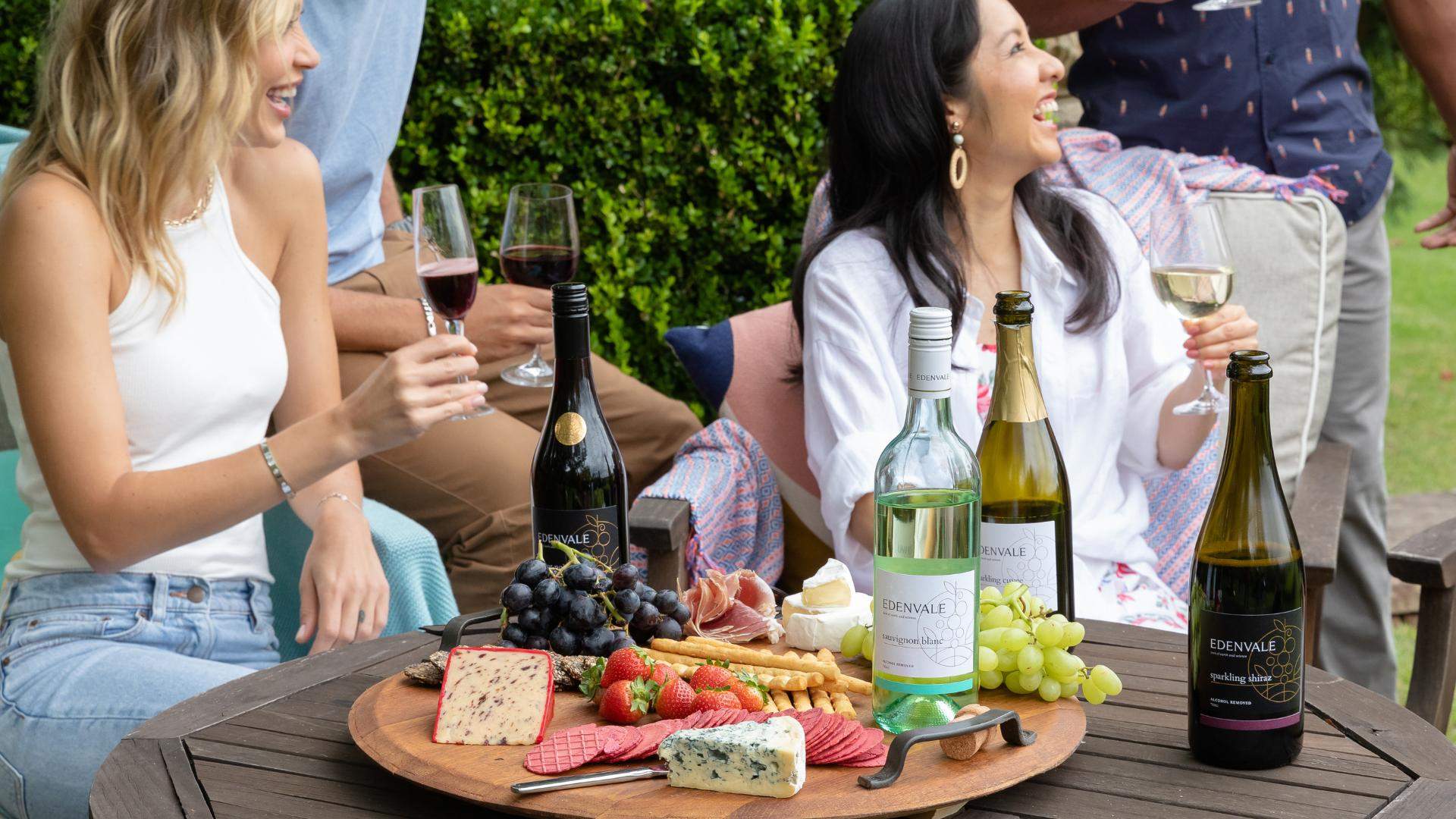
Can you bring me through the process of actually making alcohol-removed wines?
The basic winemaking process is the same. We harvest the fruit, remove the stems and leaves and then crush the fruit to get all the juice, then add yeast and ferment it. Once fermented, it is clarified to remove impurities and put through cold and heat stabilisation to prevent spoilage. There are other potential steps like ageing in oak barrels and so on. But essentially, you get it to the bottle-ready stage and then we start the process to remove the alcohol.
The standard method is with a spinning cone that uses vacuum distillation. This puts wine under a vacuum to reduce the pressure and lower the boiling point of alcohol. Before this method, winemakers would just boil the alcohol out of the wine — cooking out all of the flavours. Now we're able to remove the alcohol at quite low temperatures down around the 30–40-degree range.
This first round is called the 'de aroma step' because the alcohol that is removed also includes all the aromas of the wine. We hold the alcohol and aromas to one side and pass the wine through again more slowly to get rid of the rest of the alcohol. What's left is a quite harsh, severe wine that's been concentrated as well. It's honestly undrinkable.
So then we restore balance. Alcohol is very sweet. So when you remove the alcohol, you remove a lot of sweetness. We normally put in some grape juice concentrate to replace that. When it's ready, we return a small portion of that aroma that we took out back into the wine — but only a little bit at a time as there's alcohol in the aromas. We're not adding artificial flavours and trying to blend artificial or natural sorts of flavours to recreate wine. We're taking the original flavor and we're returning it to the wine.
So, it's almost like you kind of deconstruct the wine and you reconstruct it again?
Yes, we essentially pull it apart, get the alcohol out and then try and put it back together. And the alcohol by-product doesn't go to waste either. We sell it to distilleries for further processing and they sell that on to brandy makers. It makes for a good spirit because we use good quality grapes and wines.
What's the biggest challenge you'd face when making alcohol-removed wines?
It can be challenging, not just because of the flavour, but also trying to make it not look like watery juice. We also have issues with spoilage. As we've removed the alcohol, we've removed the main preservative that stops it from going bad. We have a really short time frame from when we remove the alcohol to trying to get it into a bottle nice and safe in a sealed environment because it really wants to ferment. With regular wines, you can leave it for months or longer before bottling, but we don't have that luxury with alcohol-removed wines. We need to get everything right in one go.
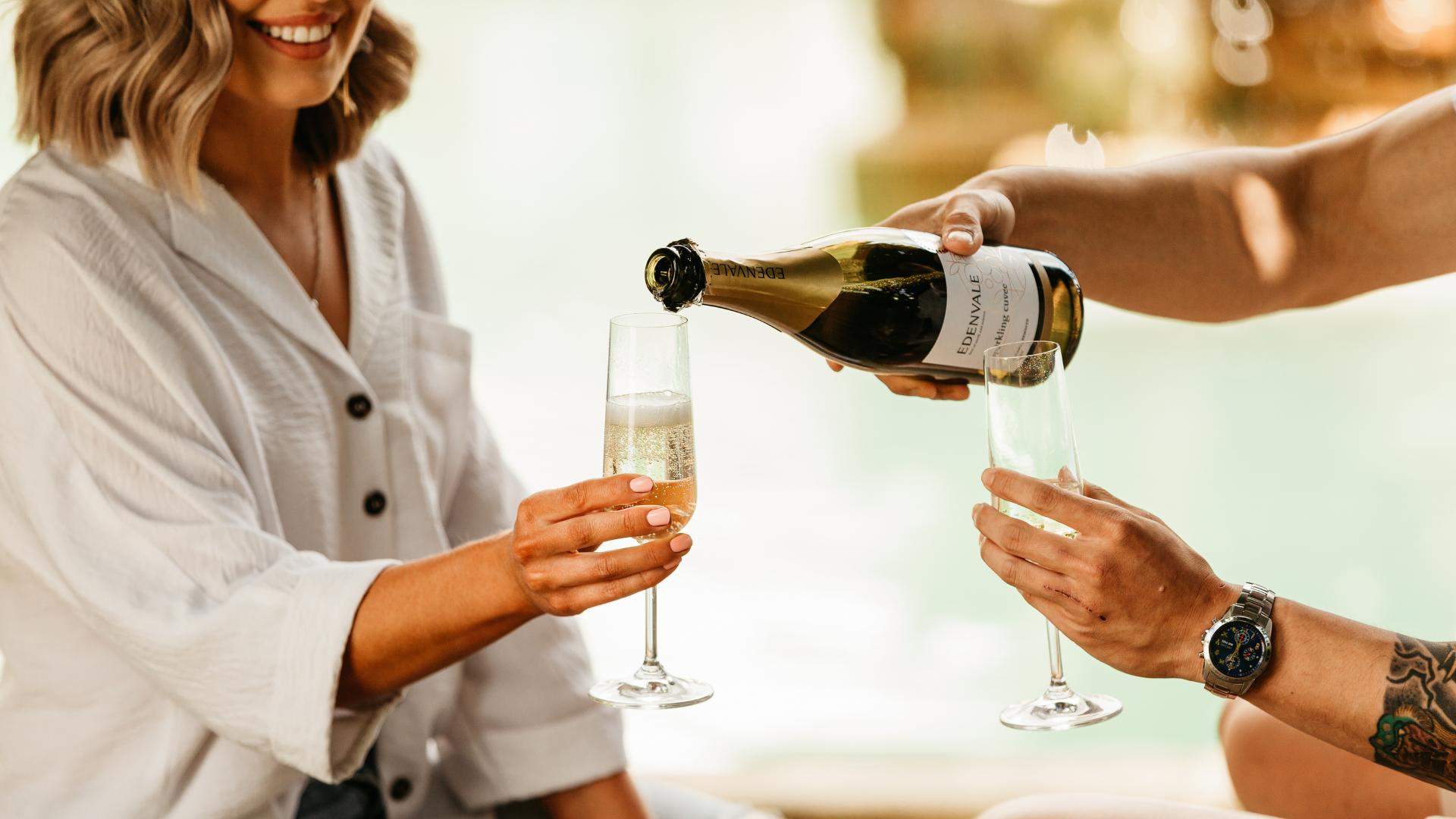
Do you think an average wine drinker would be able to tell the difference between alcohol-removed wines and traditional wines?
If you don't prime them and just pour wine at dinner and don't mention it, you might get away with it for an average wine drinker. It'll be much harder to detect that there's no alcohol in a sparkling wine than in aromatic whites. We find that sparkling wines are the easiest to make as the bubbles help to fill the palate and lift the flavour so you don't notice the missing alcohol quite so much. Then the next is probably our aromatic white like sauv blanc and riesling because they are fresh and fruity. Then more complex heavier whites like chardonnay.
It gets a little bit easier to tell with reds. When we pull that aroma out, what's left is an extremely floral red berry flavour, not the expected complex notes and then there are the tannins.
I was going to ask, do you lose any of that tannin structure?
No, it actually comes forward really aggressively. The sweetness and mouthfeel of alcohol tend to help soften those tannins. When you take that away, the tannins become really quite harsh. That's why the alcohol-removed wines have grape juice concentrate in them to replace that alcohol sweetness and also to make those tannins a lot less harsh and more drinkable. Our GSM from Fleurieu Peninsula is a more serious de-alcoholised red that stacks up. We've done our best to dry up that wine as much as possible.
How would you go about pairing Edenvale Wines?
The wines pair excellently with food. You can even cook with them — there's no alcohol to cook off. I would say to pair seafood with our sem sauvignon blanc, canapes with our sparkling and for a big rich fatty steak I'd probably go with our sparkling shiraz. It might seem like an odd choice but it's got a big body and mouthfeel that would help to balance out a nice big steak.
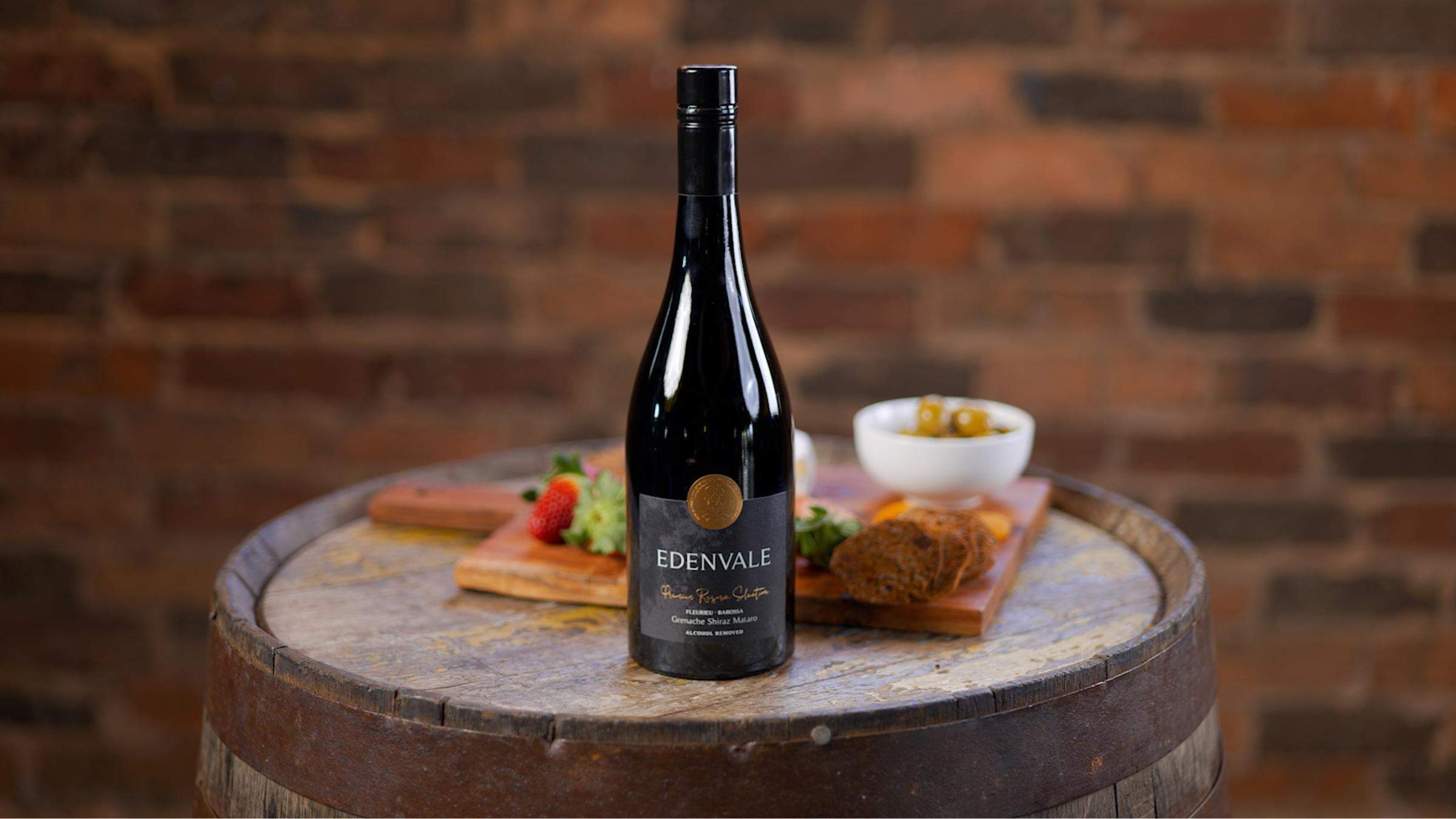
Do you see a point in the future where traditional wine is a competitor to your wines?
I think right now it's different enough that people are choosing us specifically because we have no alcohol. If it gets to a stage where they're deciding whether or not they feel like alcohol and we're a good alternative, that would be a good place to be. But it's great that punters have the choice now between a mocktail, zero-alcohol beer and zero-alcohol wine.
And why do you think there has been such a trend towards non-alcoholic beverages of all kinds?
There's definitely an underlying trend in younger people to drink less alcohol and a growing health awareness around the consumption of alcohol. Speaking from my own point of view, if I get a hangover before a weekend when I have plans, that then makes me feel like I've wasted my entire weekend. With these wines, we retain all the good things about the drink, all the good extracts from the grape, just no alcohol.
What do you think would be the future for Edenvale Wines and alcohol-removed wines in general?
I think right now the focus on this side of the wine world is fantastic. There's a lot more energy in the industry. We're getting a lot more funding into research and I think we may see new developments and new technology to make the process even better.

Edenvale Wines is a premium range of alcohol-removed wines that are available to purchase directly from the website or at most major supermarkets and liquor retailers.
